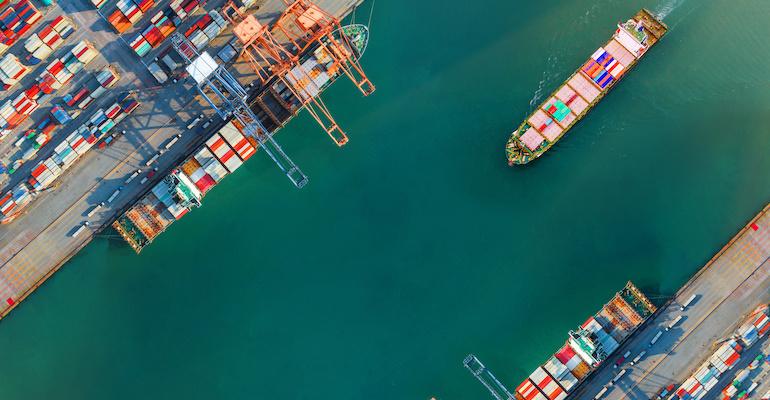The Drewry World Container Index (WCI) was up 15% at $3,072 per feu on 11 January compared to the previous week while the Shanghai Containerized Freight Index (SCFI) was up 16% at 2206.03 points for the week ended 12 January.
Increases of the WCI were highest on the Asia – Europe/Med trades which are directly impacted by diversions from the Red Sea where shipping has come under attack from Houthi rebels to transiting via the longer route round the Cape of Good Hope.
According to Drewry freight rates from Shanghai to Genoa increased by 25% to $5,213 per feu while rates rates on Shanghai to Rotterdam rose by 23% to $4,406 per feu.
Drewry said it anticipates East-West spot rates to increase in the coming weeks, due to the Red Sea/Suez situation.
The re-routing via the Cape of Good Hope in particular results in short term dislocation of tonnage and equipment due to adding over a week or more to the transit between Asia and Europe and up to two weeks on Asia – Med.
Sea-Intelligence CEO Alan Murphy commented: “On Asia-North Europe, the impact is quite visible, due to a combination of some services being held back in departure from Asia in the short-term awaiting re-routing, and some services clearly arriving late into Asia, thereby causing a rapid shortfall in the middle weeks of January, with a steep capacity drop now expected for the week of January 22.”
It said a similar trend is being seen on both Asia-Med and Asia-North America East Coast, but a week earlier.
Murphy tempered against calling the situation a disaster noting current disruptions were no where near those seen in the pandemic.
Copyright © 2024. All rights reserved. Seatrade, a trading name of Informa Markets (UK) Limited.
Add Seatrade Maritime News to your Google News feed.  |

